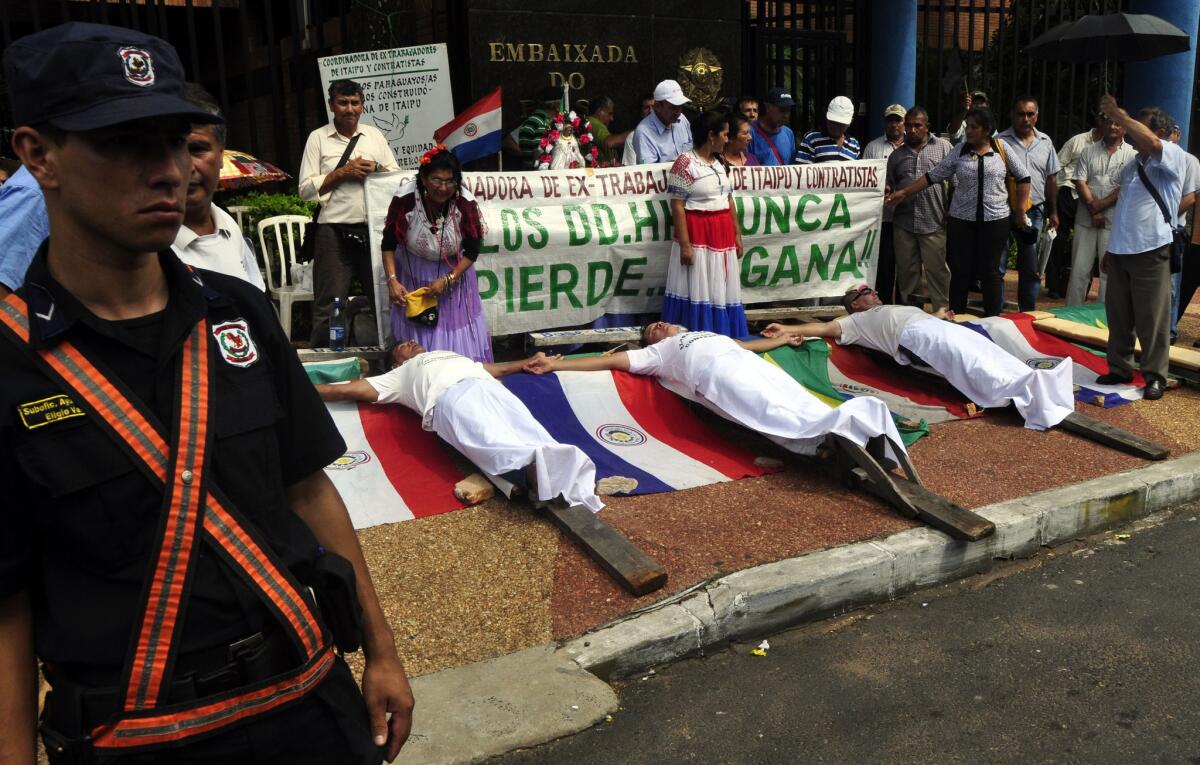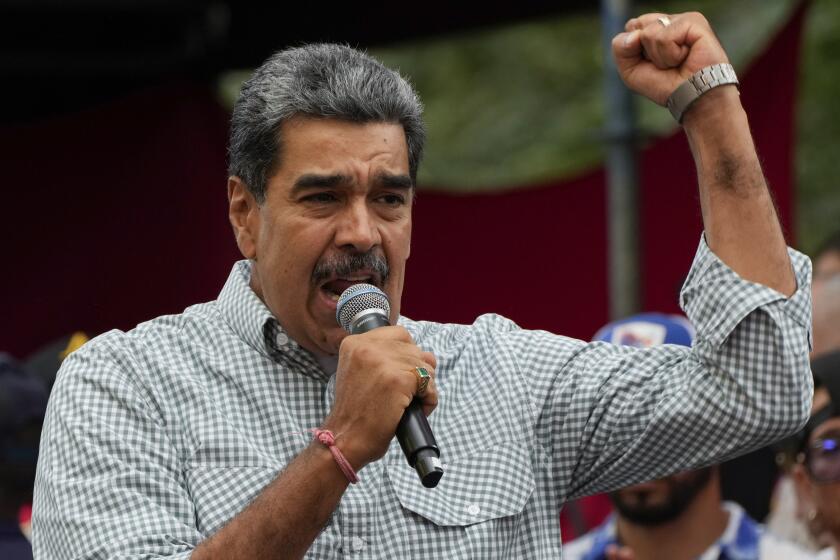Paraguay government agrees to talk with protesters nailed to crosses

The Paraguayan government agreed Tuesday to meet with former workers who have nailed themselves to wooden crosses over a wage dispute, an increasingly common form of protest in Paraguay that has been condemned by the Roman Catholic Church but has often been successful.
Four men and a woman have been nailed to crosses for several weeks and a sixth person planned to join them Tuesday until Paraguay’s Work Ministry agreed to meet with the protesters Jan. 26.
“With this news, we will cancel the sixth crucifixion,” said organizer Carlos Gonzalez, but he added that the five people would remain on the crosses.
The workers claim they are owed several thousand dollars for work many years ago on the Itaipu Dam, which is on the Parana River shared by Paraguay and Brazil. The dam, one of the world’s biggest hydroelectric projects, is jointly administered by the two countries.
Ignacio Martiez, a political analyst, said crucifixion protests, which began a decade ago, are successful because Paraguay’s government tends to address whoever “yells the loudest.”
The latest protest began Dec. 8 outside the Brazilian Embassy in Paraguay’s capital, Asuncion, when Roque Samudio, 58; Gerardo Orue, 49; and Roberto Gonzalez, 61, all unemployed, were the first to lie down on large wooden crosses and have 3-inch nails driven into their hands. In recent weeks they were joined by Pablo Garcete, 71, and Rosa Caceres, 52, a mother of nine whose former husband worked on the dam.
Organizers say at least 20 other people are prepared to be nailed to crosses if they are not given what they want.
Gonzalez said some 9,000 workers are owed about $40,000 in back pay and other benefits for work they did at the dam at various times during construction from 1974 to 1996.
The protesters spend the day lying in the crucifix position on crosses flat on the ground, drinking juice, water and milk while volunteers fan them in the summer heat. Since the protest began, temperatures have hovered around 100 degrees. At night, they come off the crosses and sleep in tents.
Because the protesters don’t move during the day, they need help to relieve themselves and stay clean. Male supporters of the protest clean up the men while a few women tend to Caceres.
“They are given massages on their arms, muscles and legs to make sure blood continues to flow without problems,” Gonzalez said.
Before being nailed, the protesters receive local anesthetic on their hands, said Miguel Samaniego, a former worker who tends to the protesters. Samaniego said his only medical training was a few first aid classes.
For weeks, Paraguay’s government declined requests for comment on the protest. But on Tuesday, Work Minister Guillermo Sosa said the government would listen to the workers’ complaints at a meeting also attended by representatives from Itaipu.
Itaipu argues it isn’t responsible for the disputed wages because the work was contracted out to various construction companies. “They signed a labor agreement with construction companies, not with the binational entity Itaipu,” spokesman Abel Gimenez said.
The workers contend Itaipu is responsible because it approved the subcontracted companies.
Crucifixion protests in Paraguay, a poor, majority Catholic country of about 7 million people, began in 2004 when a disgruntled hospital worker was nailed to a cross. Since then, the tactic has increasingly been used by people from various sectors when negotiations break down.
The Catholic Church’s Paraguayan Episcopal Conference issued a statement in 2004 condemning the crucifixions, saying such protests had “questionable ethical and religious dimensions.”
“Life is a gift from God. It must be cared for and respected as something sacred,” read the statement, which the church still refers to when asked about the crucifixions.
More to Read
Sign up for Essential California
The most important California stories and recommendations in your inbox every morning.
You may occasionally receive promotional content from the Los Angeles Times.









